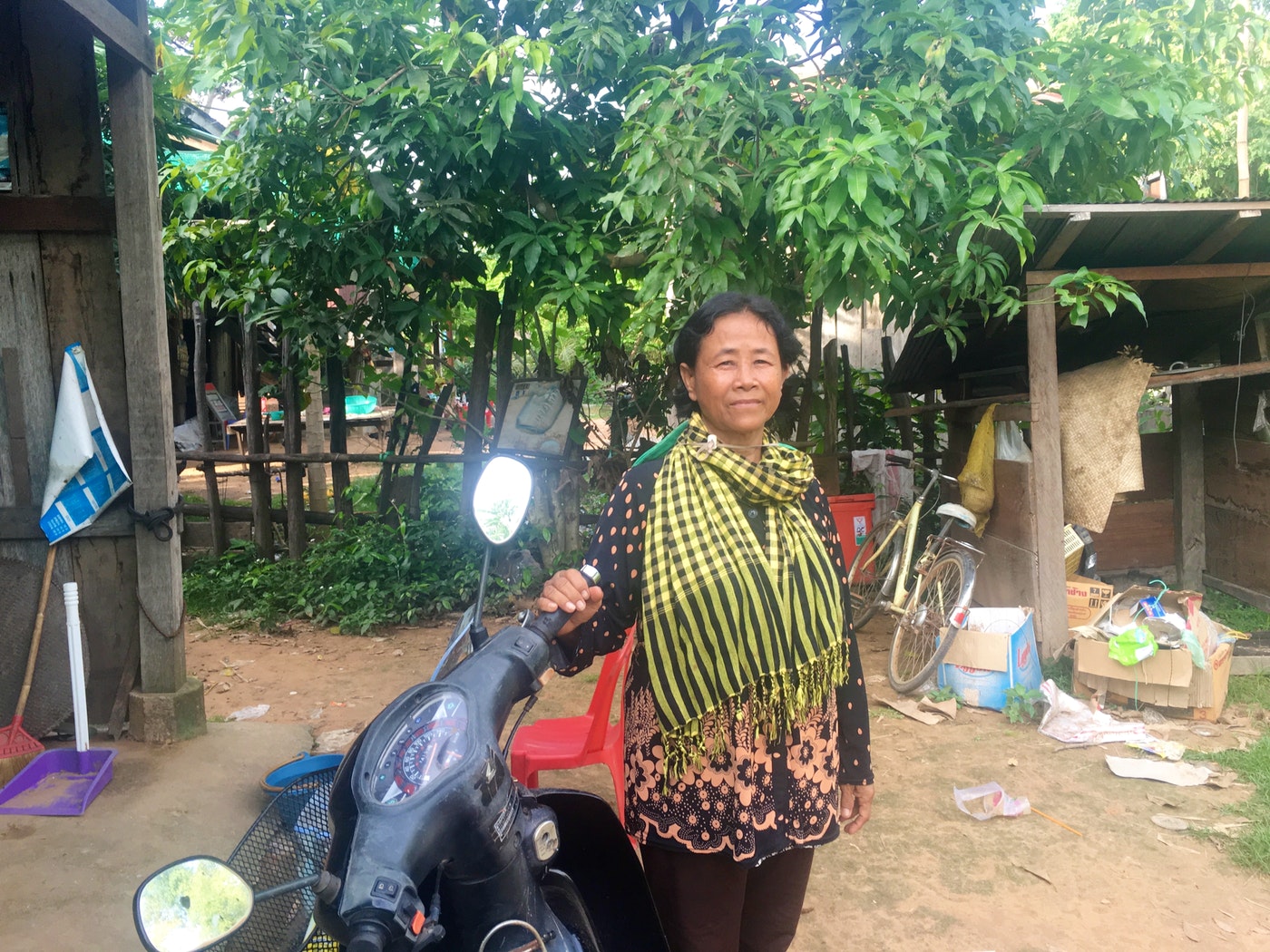Cambodia has the fastest rate of deforestation in the world, with forest loss increasing by 14.4 percent annually between 2001 and 2014, according to scientists from the University of Maryland and the World Resources Institute. Much of the loss is tied to the leasing of large swaths of land, known as economic land concessions, to big companies for rubber and timber production.
But in 2012, the government declared an indefinite moratorium on all new economic land concessions and pledged to protect the country’s dwindling forest cover. Since then, much of the Prey Lang Forest, a 1,390-square-mile (3,600-square-km) area that spans four provinces, has been declared protected land where logging is prohibited.
Despite these efforts, illegal logging continues, and walks through Cambodia’s forestland are interrupted by the constant buzzing of chainsaws. In May, the Environmental Investigation Agency released a report revealing that Vietnamese companies and officials are systematically smuggling huge quantities of illegally logged timber from Cambodia’s protected forests.
In response, the PLCN activists, who all come from villages in Prey Lang, have taken matters into their own hands. Volunteers patrol the dense forest on motorbikes searching for illegal loggers and confiscating their chainsaws. Occasionally they collaborate with local officials on the patrols, but most often they work on their own. The loggers, aware that their activities are illegal, either flee the scene or hand their equipment over to the group of activists.
The activists say their patrols have earned them the ire of both illegal loggers and corrupt police and military officials, who occasionally take a cut of the profits for turning a blind eye to the illegal timber trade.
The risks are real: One 25-year-old activist was attacked with an ax last year while she patrolled the forest. Nevertheless, Am says her commitment to the woods outweighs the danger.
“I feel scared going on the patrols. I don’t want to get killed or shot by a logger. They hate us, and I think they’ll hurt us,” she explains. “But we want the forest to be protected and sustainable for the sake of the people.”
Many of the women in the PLCN say their livelihoods and traditional way of life depend on the forest and its rich biodiversity. Tree resin is sold and used to make medicine, and locals eat and sell wildlife and game found in the forest. Rapid deforestation has accompanied a change in weather patterns that impacts the rice and other crops the communities rely on for both food and income, they say.
Mom Sokun, 32, says she got involved with the PLCN seven years ago because she was afraid that logging was making animal habitats disappear.
“If the situation doesn’t improve, if the loggers keep cutting down trees, many villagers who depend on the forest will have to migrate to Thailand [for work],” Sokun says.
Sokun regularly patrols the forest around Kampong Thom province, accompanied by other activists. Her group confiscates chainsaws and axes, and sometimes asks the intercepted loggers to sign a document pledging they won’t repeat the offense.
The activists don’t use force; they outnumber the loggers and use different tactics to stop them from felling trees. Some confront the loggers while others take pictures and notes to document the crime scene. This often intimidates loggers into halting their activities. Sometimes, she says, they appeal to the religious beliefs of the loggers and ask them to promise the forest spirits they won’t continue to cut down trees.
But these diverse tactics are often met with resistance, and confrontations with loggers occasionally devolve into shouting matches.
Sokun says that once, while on patrol, she ran into a soldier who wanted to know who had authorized her work.
“He said it’s not my forest so I should just let the loggers cut down trees,” Sokun explains. “I said I’m not doing this for myself, but for all of the people who live here.”
Eng Bisey, 62, says some of the companies responsible for logging hired private security guards to threaten her and other PLCN members when they were patrolling in Stung Treng province.
Nevertheless, she says the PLCN is making progress amid the constant danger, stopping loggers in the act and raising awareness about the need to protect the forest.
“We understand that [the loggers] need to make money,” she says. “But we hope that if they come and talk, we can also educate them and explain why they shouldn’t cut down trees.”
Source: News Deeply | 26 July 2017














